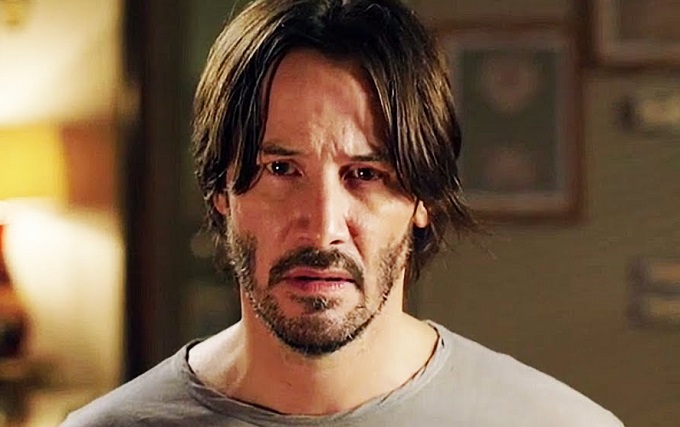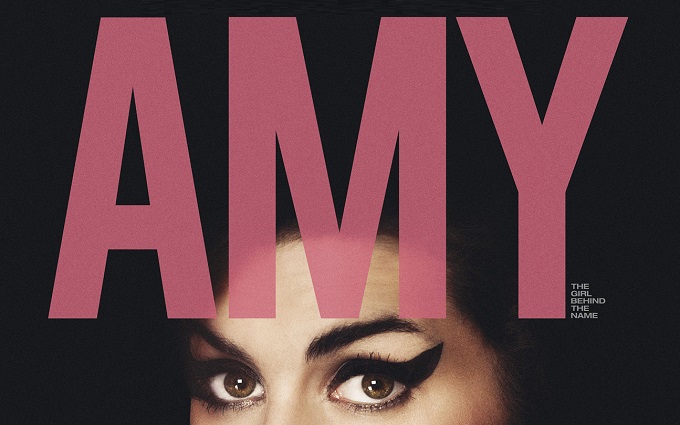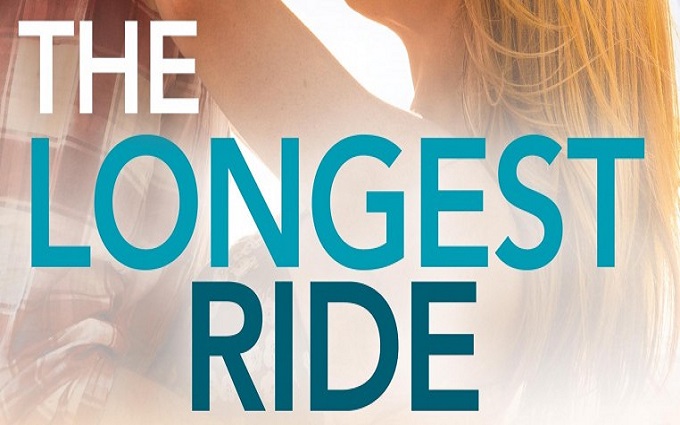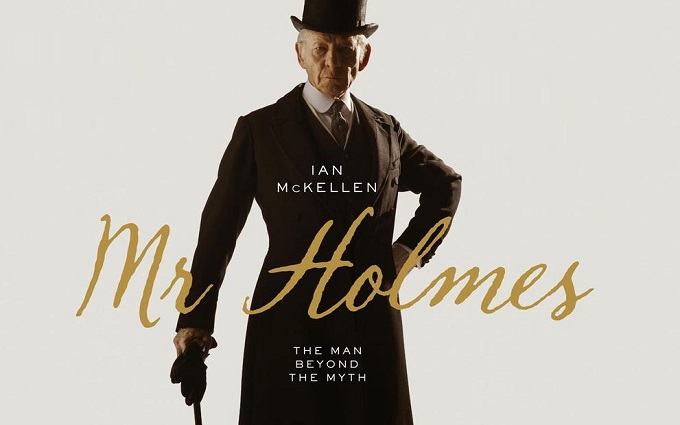Knock Knock Review

The Plot
When his wife and children are away for the weekend, family man Evan (Keanu Reeves) is visited and promptly seduced by two young girls, Genesis (Lorenza Izzo) and Bel (Ana de Armas). But the weekend takes a turn for the worse when they return the following night to wreak havoc on his life.
The Good
Eli Roth’s latest horror is perhaps his most mainstream yet. With it’s strongest asset being Keanu Reeves who, fresh from his turn as ass kicking John Wick, gets to sit back on the action in a role which at times allows us to see him in a much more restrained situation. And we’re not just talking about his being tied up for most of the film.
Of course, with this being an Eli Roth film, the gore is still very much around, however for the less trained stomach, Knock Knock is undoubtedly the safest option from Roth’s every growing back catalog of torture porn.
The Bad
For fans of Roth’s previous films however, the lack of gore is the least of it’s problems. Knock Knock is essentially a film of two halves, both of which are just as bad as each other. After a cringe worthy opening scene thanks to the over-use of an incredibly awkward ‘monster voice’ which Reeves’ Evan uses firstly to scare his children but then embarrassingly continues to use to try to seduce his wife into bed – A tactic which thankfully doesn’t work – the dialogue barely picks up.
Once the wife and kids are out of the story and the femme fatale duo of Lorenza Izzo and Ana De Armas enter, the film takes a turn for the worst in an incredibly long seduction sequence which feels like dialogue has been taken from an extremely painfully written porn film. It’s a sequence written so badly it makes Fifty Shades feel like Jane Austen.
The latter half thankfully picks up a bit in its dialogue, but unfortunately feels like it would be much better suited in a straight to dvd thriller. It’s almost a shock to the system to know that this came from Eli Roth and is especially disheartening to know that this came after the incredible The Green Inferno – one of the highlights of last years Film4 Frightfest and a film that to this day still hasn’t had a proper release in the UK, while Knock Knock is allowed to almost ruin the good name of Roth in a mere 99 minutes.
The Ugly Truth
Keanu Reeves is arguably the only good thing in this poorly written film that somehow came from the mind of a director who was at the top of his game last year with The Green Inferno. Unfortunately Reeves is unable to do much with his character thanks to the story which screams potential, leaving for an unimpressive feeling that hopefully won’t completely ruin Roth’s career…
Review by Johnny Ellis
Amy Review

The Plot:
A comprehensive documentary exploring the rise and tragically fatal fall of musical sensation Amy Winehouse, featuring intimate home videos and in-depth interviews with those closest to the notorious British singer.
The Good:
BAFTA winning filmmaker Asif Kapadia has impeccable credentials as a documentarian. His 2012 Ayrton Senna documentary skilfully assembled a mesmerising portrait of the flamboyant racing star’s life and tragically early death from a rich tapestry of archival footage. With Amy he adopts a similar approach to exploring the life and death of a very different pop culture icon, singer Amy Winehouse.
Largely assembled from previously unseen home movies shot by her friends, manager and family the film follows Winehouse from being discovered as a teenager with a surprisingly soulful voice to her untimely death at just 27. It combines these intimate moments with carefully inserted commentary from those closest to the singer. This emotional testimony is both painfully candid and increasingly poignant as the film progresses towards its inevitably sombre conclusion.
It’s perhaps surprising that for a celebrity figure already so massively overexposed by invasive tabloid, tv and paparazzi coverage that the film is able to present audiences with any genuine sense of previously unseen intimacy. In particular the early footage of the star as a 16 year old Jazz obsessed but otherwise ordinary teenager, may add a different perspective for some to the tragic public caricature she became.
The film charts her explosive career as in just a handful of year’s and two albums she went from being an unknown soulful voice to one of the most acclaimed and recognisable singers on the planet. At the same time the film confronts the sad toll her personal demons and substance abuse took on her mind and body.
The film explores the stark juxtaposition between lucrative musical success and the painfully obvious self-destructiveness that accompanied it. Though it may be a sadly familiar tale of seemingly cliché rock and roll excess, it’s interesting to see such a detailed personal narrative of the experience.
The Bad:
Though undeniably impeccably well-crafted as a documentary, Amy is perhaps unlikely to radically alter pre-existing perceptions of the singer and her tragically early demise.
The film adequately documents the progression of the young singer’s seemingly evident emotional issues into a downward spiral of self-destructive addiction, fuelled at least in part by the pressures of relentless public scrutiny. However the film doesn’t really ever offer any great revelations of insight into the reasons for this tragic trajectory.
The Winehouse family and particularly Amy’s father Mitch have subsequently disowned the documentary, partly due to its clear assertion that his infidelity and absence during her formative years was a key factor in her depression, eating disorder and substance abuse. The singer literally says as much in her own words. The wider accusation that her family and drug addict husband contributed to and then perhaps even greedily avoided dealing with her chronic problems clearly wasn’t appreciated either. Even if true this isn’t a particularly subtle or shocking revelation.
Likewise the film draws casual attention to Amy’s openly self-professed reluctance to be famous and the inevitable impact that constant media coverage had on her crumbling physical and mental state.
The film takes a generally sympathetic tone towards its troubled subject, but audiences may not necessarily share that sentiment. For those who celebrate Winehouse for her vocal talent and brash personality there will be others who find those abrasive qualities more obnoxious and have far less sympathy for her self-destructive behaviour. Some will undoubtedly still see the singer as someone who selfishly squandered her gifts, good fortune and remarkable opportunities.
The Ugly Truth:
For fans of the British singer and anyone somehow unfamiliar with her life and musical achievements this expertly crafted documentary will provide a sincere tribute and comprehensive account. Anyone already less enthusiastic about her music or unsympathetic to her personal problems may find this less compelling viewing.
Review by Russell Nelson
Idina Menzel World Tour Wembley Concert Review

The Set List
Defying Gravity , Don’t Rain on My Parade, Brave, I Stand, The Wizard and I, River, Love For Sale/Roxanne, There’s No Business Like Show Business/Anything Goes/ Everything’s Coming Up Roses, Still I Can’t Be Still, Creep, Take Me or Leave Me, No Day But Today, Always Starting Over, Let It Go.
Encore: Child, Tomorrow.
The Good
Tony Award winning theatre icon Idina Menzel is now a record breaking global superstar, adored by generations of fans around the world as the voice of Frozen Disney princess Elsa. After Oscar glory and the unprecedented pop culture phenomenon of Let It Go, it’s fitting that Menzel fulfills one of her own admitted life ambitions to play to a delighted crowd in Wembley Arena.
Menzel has a staggering vocal power which burst from the stage with every note of every ballad. There’s a deep rich tone to her voice and an unashamed theatricality to her performance, honed through years of Broadway and West End productions. She’s a true show stopping diva, of a caliber rarely seen.
Playing to over 10,000 people tonight in the cavernous arena, the ever undaunted Idina delivers a crowd pleasing section of familiar songs that serves almost like a musical autobiography. The set combines ionic tracks from productions like Rent and Wicked with covers that pay heartfelt homage to Menzel’s own musical influences.
Opening with Defying Gravity gives audiences the instant satisfaction of hearing the definitive version of Elphaba’s uplifting ballad. Though many talented performers have followed in her footsteps, nobody ever truly matches Wicked’s original star Menzel. Idina speaks with fond passion about the all the productions that made her a star. It’s especially poignant to hear her pay an emotional tribute to Rent creator Jonathan Larson before delivering a tear stained version of No Day But Today. These are the songs that won Menzel a devoted following before she ever became ‘Disney famous’, and they clearly mean just as much to her as her fans.
Menzel has a close connection to her fans and there’s no better way to show that than by literally rushing off the stage to sing among and with them. During a jaunty rendition of Take Me or Leave Me, Idina races around the crowd to duet with stunned fans, before dragging some of the most talent singers back on stage with her. It’s a perfect embodiment of the beautiful spirit of community and mutual love that often distinguishes theatre stars from their pop and rock star counterparts.
Menzel is fully aware she’s part of a proud legacy of bold stage divas and she pays frequent homage to that with covers of classic songs by Ethel Merman and Julie Styne. More contemporary covers of acts like Radiohead, The Police and Joni Mitchell prove to show Menzel’s own range as an artist and unsurpassed skill as a vocalist.
Of course for most fans, the true bucket list moment of the night is undoubtedly helping Menzel proudly blast out a belting rendition of Let It Go. It’s the song which single handily made her an instant household name around the world, beloved by children and relieved parents alike. Live, she attacks the endlessly played song with joyous enthusiasm. Indeed, the true secret of the song’s unique success and global appeal is that it encapsulates the spirit of bold anthemic optimism embodied in much of Menzel’s work. Let It Go is a song defined by Idina Menzel, not just a song that defines her.
It’s hard to imagine any encore that could possibly surpass the power ballad might of Let it Go, but closing out a set with Tomorrow from Annie is a beautiful way to leave audiences indeed.
The Bad
Younger fans may be a little traumatized to learn that when she’s not letting it go as Queen Elsa, Menzel also has a habit of letting f-bombs go on stage. Menzel’s between songs chatter is endearingly sassy and frequently foul mouthed. Though admittedly it’s highly amusing and quite charming for the mostly adult crowd to see Menzel knowingly show off in front of fellow grownups for a change.
The fiercest critics might point out that Menzel mostly sings material written by other people or borrowed from other artists. But that would do a cruel disservice to the transformative power of her unique voice and emotional performance. For example, when Menzel delivers her heart wrenching version of Radiohead’s Creep, backed by the heavenly crescendo of a big band, it’s fragile and triumphant in ways which arguably eclipse the original version.
The Ugly Truth
Idina Menzel is a delightful diva with a powerhouse voice big enough to dominate any stage and enchant any audience. Working her way through a well-chosen hit list of show tunes and show stoppers she gave London an unforgettable night and a flawless dive masterclass.

The Longest Ride Review

The Plot
When a young couple save an old widower from a fatal car crash, their relationship becomes intertwined with flashbacks of his own past as he reflects on his past love.
The Good
Fresh from riding bathtubs with George Clooney in Tomorrowland, Britt Robertson switches Clooney for Scott Eastwood in the latest big screen adaptation based on the seemingly endless supply of Nicholas Sparks novels.
The Longest Ride has everything Nicholas Sparks fans know and love. From the intertwining storylines that juxtapose relationships from two different time periods, to the generic poster of the two leads looking longingly into each others eyes while casually advertising an idyllic American country life.
As Robertson’s Sophia, an art student, reads countless love letters back to Ira (Alan Alda) while he recuperates from his car crash, it will come as no great surprise that Ira’s relationship with his recently deceased artist wife Ruth, bears some striking similarities to her own relationship with her bull rider boyfriend, Luke (Eastwood).
Of the two interconnecting stories Ira and Ruth’s is slightly more interesting than Sophia and Luke’s. The chemistry between young Ira and young Ruth – played respectively by Jack Huston and Oona Chaplin – feels a bit more fleshed out, with the fact that their story follows them through to old age probably being the main reason for this.
The Bad
Sophia and Luke’s story is much less believable and at times, annoying. After their very first date, Sophia decides to almost preemptively end the chance of a relationship as she prepares to move to New York for an internship, a move that would undoubtedly cause some strains in a new relationship. But this being a Nick Sparks film, the spark is there from the very beginning (if you’ll pardon the pun) and of course we couldn’t have the relationship end so early and sensibly.
Then there’s the ‘opposites attract’ side to the relationship, which can be found in both Ira and Ruth and Sophia and Luke’s storyline, with the girl being the artsy type but the guy not being able to understand art at all. However in Sophia and Luke’s story, the difference between the two is amped up slightly by Luke’s career as a professional bull rider. In a Rocky Balboa move, Luke carelessly continues a career which is slowly but surely increasing the chance of his death. While he certainly has a motive to continue the career his father had, for most of the film it’s not motive enough.
The Ugly Truth
The Longest Ride is instantly recognizable as a Nick Sparks romance and has everything fans of his expect and enjoy from surely one of the most prolific names in the romance genre today. Though it has some issues with half of it’s main storyline, there’s still enough in there to keep you entertained.
Mr. Holmes Review

The Plot
In 1947, Sherlock Holmes (Ian McKellan) is retired and nearing the end of his life. With his memory fading, he tries to write the story of his final case with help from his housekeeper’s young son.
The Good
Sherlock Holmes is a character who has lived a cinematic life that spans the length of cinema itself with countless iterations of quite simply the most influential literary detective ever created. While the most recent examples come from Robert Downey Jr and of course Benedict Cumberbatch, Mr. Holmes brings a incredibly interesting take on the famous detective with McKellen’s Holmes slowly deteriorating from the genius he once was.
Adapting Mitch Cullin’s A Slight Trick of the Mind, writer Jeffrey Hatcher, splices moments from Holmes’ final case among his final days spent reflecting back on his extraordinary life. Director Bill Condon’s beautiful visuals of the english countryside provides a worthy backdrop to this much more personal take on the iconic Holmes’ character.
It’s McKellen who is of course the driving force in this story though. He manages to perfectly portray Holmes as both the strong confident detective from thirty years prior, and the frail time ravaged figure he becomes in 1947. Praise must also be given to Milo Parker who has the honour of playing almost the new Watson in young Roger, Holmes’ housekeepers son who helps him in his quest to recall how exactly the final case ended and more importantly, what made it his final case.
The Bad
While the performances and cinematography throughout Mr. Holmes are indeed stellar, the film does seem to lack the scope it needs to distinguish it as a worthy cinematic film. Perhaps it is the case that Holmes’ is revisiting, which revolves around a man who seeks his talents in solving the mystery surrounding his wife, that makes Mr. Holmes feel ever so slightly better put to use on BBC1 as a festive drama special. It is produced, after all by BBC Film.
The timing of this release also feels a little misjudged. Mr. Holmes doesn’t feel right competing alongside summer blockbusters like Jurassic Park. Had it been released around October/November time, when the Oscar contenders start to poke their heads into the public view, Mr. Holmes could very well have earned an awards nod for McKellen. A June release means that ironically it will likely be long forgotten by the time of next years awards season.
The Ugly Truth
Mr. Holmes is an interesting look at a character whom audiences around the world are all too familiar with today, that gives a much more personal and poignant view of the detective in his final years. McKellen gives an awards worthy performance that unfortunately even if perhaps the production would overall have been better suited to the small screen.
Review by Johnny Ellis



















